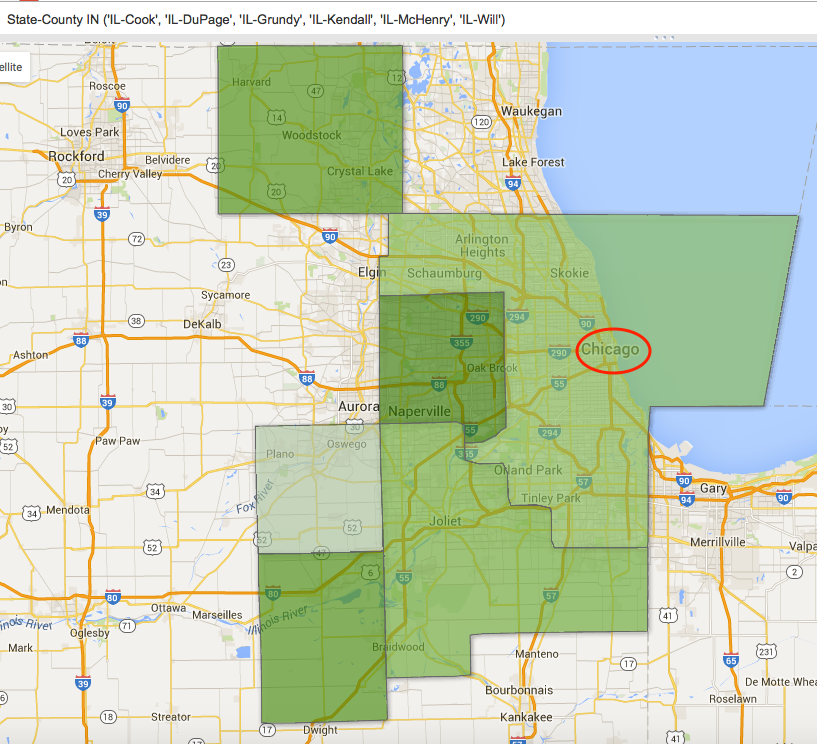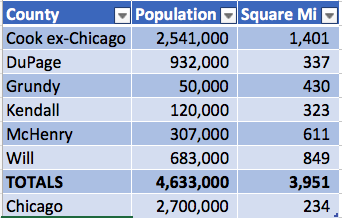@TBPInvictus here
As those who have been following along already know, Seattle has been ground zero for the minimum wage battle, having raised it earlier this year.
Critics of the higher minimum – of any minimum at all, actually – have been twisting and torturing data in a pathetic attempt to prove the higher wage is having a deleterious effect. I’ve been addressing those idiotic arguments for over six months now, and it appears there’s no end in sight.
The Atlantic runs with a story that leans on a “report” out of the American Action Forum that purports to demonstrate that “hiring has slowed in the cities that changed their policies this year,” although “it’s probably too early to tell, economists say.”
As an aside, here’s a brief rant to those – like The Atlantic’s Russell Berman – who call themselves journalists: Data can be like women. They can be somewhat hard to understand. It can be hard to figure out exactly what they’re saying to you. You can easily misinterpret them. Sometimes you need someone else to explain them to you. Sometimes you think they’re saying one thing, when in fact they’re saying something else entirely. Sometimes, for whatever reason, you’re looking in the wrong places, at the wrong things. And while understanding women probably isn’t essential to your job, understanding data is. So, my suggestion to you is that you spend a bit of time understanding what it is you’re writing about before you write it so I don’t have to waste my time, and embarrass you, debunking it.
Moving on, the piece on which Berman relied, at the American Action Forum, has no problem acknowledging its own worthlessness. While the piece purports to analyze the early effects of a higher minimum wage in cities that have enacted one, we see the AAF has actually done no such thing:
I know what you’re thinking – how can a report analyzing the effects of a higher minimum wage in certain cities not have “directly analyze[d] the cities that raised the minimum wages?” An excellent question. And to answer your next question, “analyzing employment trends in the entire metropolitan areas” yields virtually no reliable, dependable data on how the minimum wage is impacting the areas that enacted it. In short, the whole exercise is a waste of everyone’s time (most definitely including mine).
Since I’ve already done the city of Seattle versus Seattle-Tacoma-Bellevue Metropolitan Statistical Area (MSA) thing to death, let’s have a little fun with the AAF’s use of the Chicago-Naperville-Arlington Heights Metropolitan Division.
Here’s how the government defines the Chicago-Naperville-Arlington Heights Metropolitan Division:
By my count, that’s a total of six (6) counties that comprise the MD. Geographically, visually, it looks like this:
Here are the numbers behind the visual:
So, some 2,000,000 people reside outside the area in which the minimum wage was raised. And that area, at 3,951 square miles, is some 17 times larger than Chicago proper. The numbers aren’t as dramatic as the situation in Seattle, where the city proper is much smaller in population and square mileage than its MSA, but making inferences from the Chicago data are as useless as they are in Seattle, to be sure.
None of this, of course, will stop ideologues like Mark Perry or the American Action Forum from disseminating shoddy and useless information. But perhaps it will give some pause before they believe everything they see or hear, and beyond that, maybe it will give “journalists” like Mr. Berman a bit of a kick in the pants to do their jobs better and understand the subject matter about which they write. And a special shout-out to the AAF’s Ben Gitis, who wrote the “paper” that would line the bottom of my bird’s cage, if I had one.






Let me assure you as a nearly lifelong resident of the area, that nobody is going to drive from the city to the suburbs to save fifty cents on a sandwich. Maybe if the two restaurants are across the street from each other. Maybe. People do drive to the suburbs for major purchases and sometimes for weekly groceries, but that existed long before there were any wage differences. Basically, the city does not offer the range of goods or competition. I know that is hard for New Yorkers with your wondrous array of stores to understand (I’ve been there – it’s one Hell of a City!), but it is true. Some of that is due to the city council’s efforts to keep big box stores like Wal-mart out. Generally, shopping is at mom and pop stores, except for the North Shore.
Paul Krugman calls it ‘analysis to prove a narrative’. Wiggle a few assumption and come up with the answer you like.
Like all the think tanks for the Air Force the answer is always more bombers, or aircraft carriers if they feed on the Navy…..
Why Rubio thinks the Navy need 2 more super carriers, not having any idea how much tie the ones we won are broke, and the newest ones less than effective.
US got to have targets 6000 miles away in blue water.
Yep still fighting the last war with the expensive and hopelessly outdated weapons of the last war. In the world of the future you do not want your strategic or even tactic moves to depend on something that can be wiped out by a single nuclear weapon.
Great work on this. Thanks.
Whenever someone tells me that raising the minimum wage kills jobs I tell them how wonderful it is that the Kepler satellite keeps finding all those amazing exoplanets. Now they’ve found one where raising the minimum wage kills jobs. They’re all so different from earth.
Maybe they’ll find one where raising the top marginal tax rates slows economic growth, either that or one where everyone is made out of titanium.
Yes the standard method of right wing “think” tanks is to just do it again, even if it has been proven wrong. That is why the current set of GOP morons want to “save” the economy with some trickle down woo-doo-nomics.
They don’t really believe that. It’s just pseudoscience to cover what they really want, no taxes on the wealthy. Same for “flat consumption taxes are fairer”.
It seems like the issue is how much we all love our narratives. In this case, the narrative that raising the minimum wage is always bad (or good for that matter). I suspect that raising the minimum wage when productivity increases have exceeded wage gains for a long period of time generally contributes to an economy and raising it when productivity and wages have remained relative is generally harmful. This is a bit counterintuitive, but I think the condition of all wage earners, on average, dictates whether or not raising wages for the bottom will boost or hinder economic growth. In our current situation we have a middle class needing more customers with money to boost their prospects of increasing their own wages so the bottom rung wage hikes are generally positive.